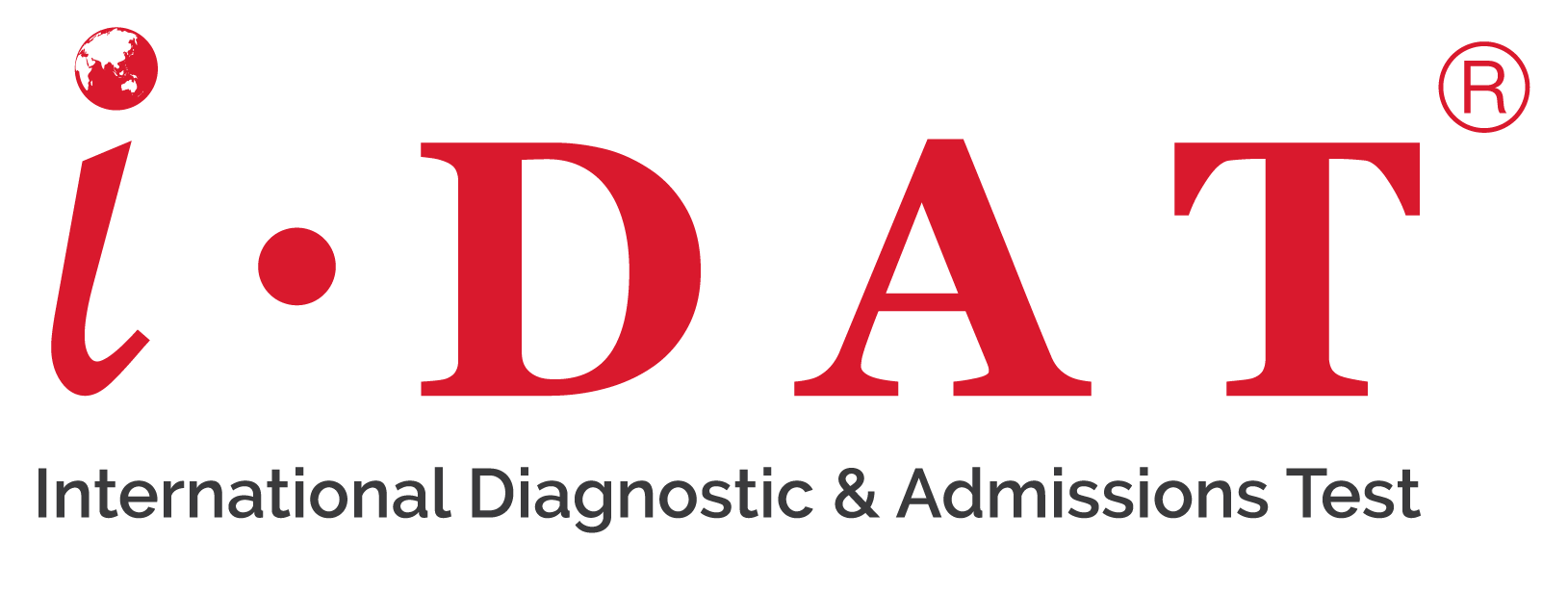STRUCTURE OF THE TEST
4 sections of the test
ENGLISH CURRICULUM
GRAMMAR AND VOCABULARY
20-25 MULTIPLE-CHOICE QUESTIONS
The student does one question at a time and cannot return to the question after submitting the answer, so please check work before hitting the button for the next question.
READING
2 READINGS, UP TO 10 QUESTIONS PER READING
Students must read a passage and answer comprehension and contextualised vocabulary questions as required for the reading. There are up to 10 questions per reading and time limits are indicated at the top of the page.
The time limit is based upon the length of the reading and how many questions there are to answer.
WRITING
2 QUESTIONS
With visual stimulus, students are required to type an extended prose about what they see in the picture. Students should answer all the prompting questions and explain themselves in full sentences. Students need to self-edit their own work. The computer system will not allow for autocorrect or spellcheck. Students are given ample time to read over their prose and self-correct. Students are marked on the complexity of writing, accuracy and ideas.
INTERVIEW (LISTENING AND SPEAKING)
10 QUESTIONS
The interview is conducted by an avatar and students spoken answers are recorded.
The questions are asked by an avatar. Students can push a button to have the question repeated, asked in another way, or asked more slowly. They can only use each of these buttons once, but it will deduct 1 point each time it is used. The student can take notes on blank paper before speaking but the paper must stay in the room. Students are encouraged not to read off the paper when they speak, as it will not help the student to make eye contact and a good impression. The student presses a button when he or she is prepared to answer, and this will video record their answers. Students are expected to give lengthy answers (limited to 2 minutes per answer) which provide insight into who they are and show the school their speaking and comprehension skills for listening.
When a student has finished recording their answer, they push the button for the next question. No answer or speaking can be erased and tried again. There is one try only.
Prospective or current schools allocated by the student may view this interview with a one-time login password when results are available.
MATHEMATICS CURRICULUM
MATHEMATICS
24-48 MULTIPLE-CHOICE MATH QUESTIONS
- 24-48 multiple-choice questions, depending on the test stage.
- 2-3 questions per type of math topic. Please refer to the outlined stage tests for details.
- For questions requiring a calculator, the calculator will appear on the screen for students to use.
- Blank paper and a pencil will be provided by test centres. The pencil and paper must not be taken out of the test room.
- The student cannot return to the question after submitting the answer, so please check work before hitting the button for the next question.
GLOBAL KNOWLEDGE CURRICULUM
GLOBAL KNOWLEDGE
18 MULTIPLE-CHOICE QUESTIONS
- Total of three (4) parts included in the Global Knowledge section: Logic, Critical Thinking, Science and Technology.
- All questions are multiple choice.
- Logic questions consist of IQ testing questions such as transformation, patterns, problem-solving and deduction. The purpose of this is to show a student's ability to think critically about a variety of questions. Critical thinking is an important part of global studies.
- Critical Thinking is multiple choice for Stages 3-6 only (not for Stages 1-2) and looks at assumption, deduction, interpretation, inference and evaluation of sources.
- The Science and Technology sections are based upon topics taken from a survey of global school curricula and are appropriate to age and level.
- Please refer to ‘Prepare for the test’ page for the current list of topics. Students are encouraged to study and commit to memory facts, figures, dates and definitions that pertain to this topic. Not only will this demonstrate school learning and retention, it will also show that a student is able to study and learn in a school environment for assessment purposes.
CHARACTER
36 MULTIPLE-CHOICE QUESTIONS
- There are a total of 36 multiple-choice questions, which demonstrate a student’s skill level and appetite for risk-taking, collaboration, self-awareness, communication and creative thinking.
- There are no ‘right’ or ‘wrong’ answers, and the student’s character is assessed in terms of skills and tendencies. There is no judgement element in this assessment; it is simply a way for schools to get to know the executive skills of students.
SELF-AWARENESS
Self-awareness helps kids learn that how they see themselves may be different from how others see them, and allows them to recognise their strengths as well as their weaknesses. Self-awareness is the thinking skill that focuses on a child’s ability to accurately judge their own performance and behaviour and respond appropriately to different social situations. Self-awareness helps an individual to tune into their feelings, as well as the feelings of others.
RISK-TAKING, ADAPTATION AND RESILIENCY
This will look at how students view opportunities for challenge, testing limits, exploring boundaries and learning about injury or risk. It will look at how the student engages in things where there is the possibility that something bad or unpleasant will happen and how they face challenges and uncertainties within the environment. The test will ascertain how students learn, how they manage their own learning, and what they do when they encounter risk.
CREATIVITY AND PROBLEM SOLVING
The ability to produce original or unusual ideas, or to make something imaginative. This will look at the mental characteristics that allow a person to think outside the box, which results in innovative or different approaches to a particular task or problem.
COMMUNICATION AND EMPATHY
This is looking at the skills needed to use language (spoken, written, signed or otherwise communicated) to interact with others, the student’s ability to convey their ideas and function in different environments, and whether they have the capacity to place oneself in another’s position. This is about a person’s standards of behaviour or beliefs concerning what is and is not acceptable for them to do.
STRUCTURE OF 6 STAGES
6 Stages based upon the year of study
VIEW DETAILS OF STAGES SETTING
Stage 1 – 120 minutes
Students applying for Aus/US/Can Year 1, 2 or beginning Year 3. UK Year 2, 3, beginning Year 4
| English: Vocabulary,Grammar, Reading and Writing | English: Listening & Speaking | Mathematics | Global Knowledge | Character |
| 30 mins + 20 mins | 15 mins | 15 mins | 15 mins | 25 mins |
|
|
|
|
|
Stage 2 – 135 minutes
Students applying for Aus/US/Can Year 3, 4 or beginning Year 5. UK Year 4, 5, beginning Year 6
| English: Vocabulary,Grammar, Reading and Writing | English: Listening & Speaking | Mathematics | Global Knowledge | Character |
| 35 mins + 25 mins | 15 mins | 20 mins | 15 mins | 25 mins |
|
|
|
|
|
Stage 3 – 155 minutes
Students applying Aus/US/Can Year 5, 6 or beginning Year 7. UK Year 6, 7, beginning Year 8
| English: Vocabulary,Grammar, Reading and Writing | English: Listening & Speaking | Mathematics | Global Knowledge | Character |
| 35 mins + 30 mins | 20 mins | 25 mins | 20 mins | 25 mins |
|
|
|
|
|
Stage 4 – 160 minutes
Students applying Aus/US/Can Year 7, 8 or beginning Year 9. UK Year 8, 9, beginning Year 10
| English: Vocabulary,Grammar, Reading and Writing | English: Listening & Speaking | Mathematics | Global Knowledge | Character |
| 40 mins + 30 mins | 20 mins | 25 mins | 20 mins | 25 mins |
|
|
|
|
|
Stage 5 – 185 minutes
Students applying Aus/US/Can Year 9, 10 or beginning Year 11. UK Year 10, 11, beginning Year 12
| English: Vocabulary,Grammar, Reading and Writing | English: Listening & Speaking | Mathematics | Global Knowledge | Character |
| 45 mins + 35 mins | 25 mins | 35 mins | 20 mins | 25 mins |
|
|
|
|
|
Stage 6 – 190 minutes
Students applying Aus/US/Can Year 11, 12. UK Year 12, 13
| English: Vocabulary,Grammar, Reading and Writing | English: Listening & Speaking | Mathematics | Global Knowledge | Character |
| 50 mins + 35 mins | 25 mins | 35 mins | 20 mins | 25 mins |
|
|
|
|
|

